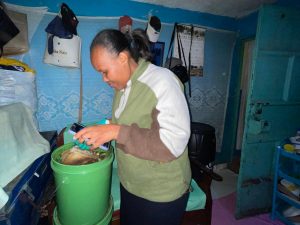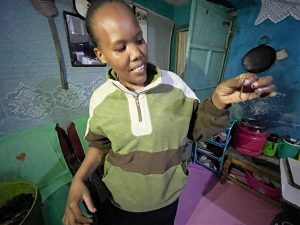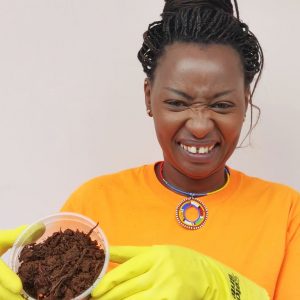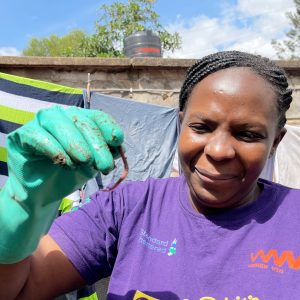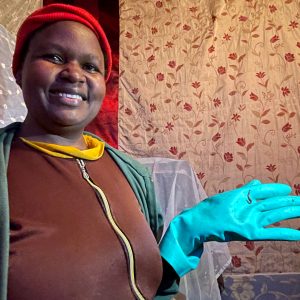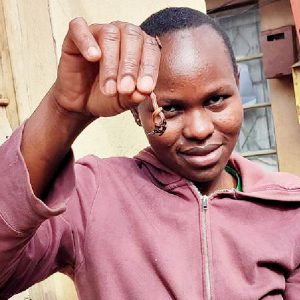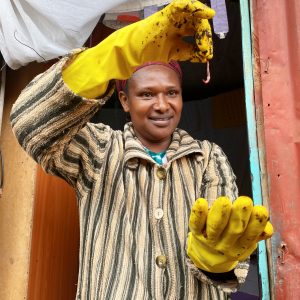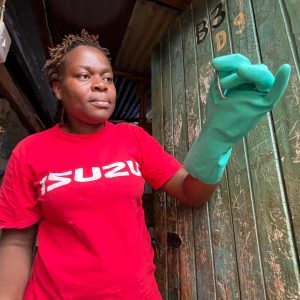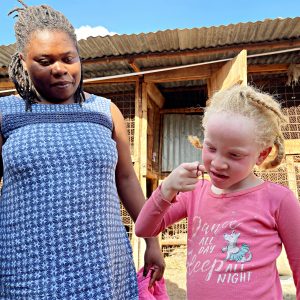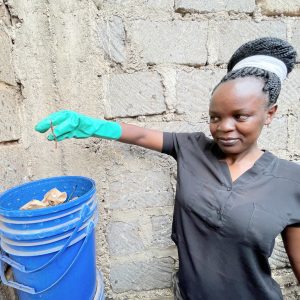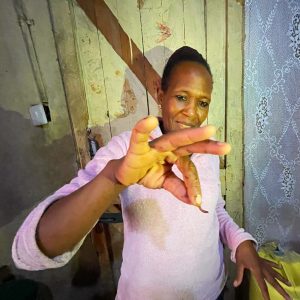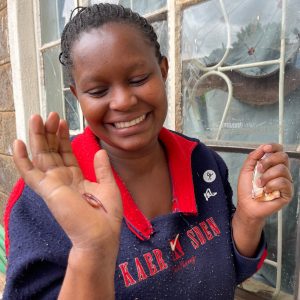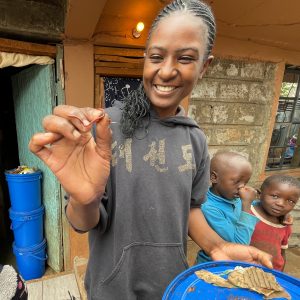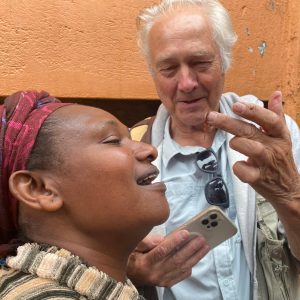(First of two posts)
The Advocacy Project is observing International Women’s Day (March 8) by acknowledging twenty women who composted 3.9 tons of organic waste in Kibera, Nairobi, and several adjacent settlements last year. Twelve of the composters also grew organic vegetables in kitchen gardens that they assembled from recycled materials.
This is no small achievement in communities that are known throughout Africa for pollution, overcrowding and under-nutrition. It is even more noteworthy given that most of the women are single mothers. Ten also have children with albinism, a skin condition that often causes affected families to shrink from public view.
But not this group. The composters have formed an association, Shield of Faith, and this year they plan to launch a series of composting “hubs” in an effort to change the attitudes and behavior of their neighbors. I visited them last Fall in the company of Stella Makena, their tireless coordinator, to understand their obsession with composting.
*
The settlements of Nairobi are called informal for a reason. Almost all of the services are provided by NGOs and an army of local entrepreneurs, many of them totally unscrupulous.
In one example, electricity is tapped (illegally) from power lines that run above the houses and sold to residents at exorbitant rates. There is no such thing as maintenance and shortly after our visit Margaret, one of the composters, learned that her eight-year old granddaughter had touched a live wire while playing outside and died instantly. Margaret had to find 14,000 Kenyan shillings to pay for the funeral – equivalent to two months wages – while coping with her grief.
Albinism adds to the anxiety. Some Shield of Faith mothers have dealt with albinism by sending their children to boarding school to protect them against bullying, superstition and violence in the settlements. (Margaret’s son was almost kidnapped and killed.) Others cannot bear to live without their children and keep them as close as possible.
We visited one of the most active composters, Ruth, who has two children with albinism and one without. The four live together in a single room high up in a gloomy tenement building in the settlement of Huruma.
There are no lights in the stairwell and Ruth hauls heavy buckets of water up through the gloom several times a day, using her phone’s flashlight to avoid a tumble. Up on the fourth floor the family shares an open toilet and shower with others that live on the same corridor. Water is so precious that Ruth saves what she can from washing clothes and dishes to flush waste down the toilet. Garbage is taken downstairs and dumped.
Once inside the family’s room, you are immediately struck by the lack of personal space. Until recently Ruth slept on the floor, which was bone-chillingly cold during winter. She has since purchased a large bed that can accommodate her and her son on one mattress and her two daughters on an upper level. But the bed takes up a lot more space and is now squeezed awkwardly between Ruth’s sewing machine and cooking area.
Such trade-offs are normal in the settlements. “I’m struggling but I’m trying!” said Ruth cheerfully.
*
I asked Ruth why she goes to the effort of composting in such a confined space. Does it not create more or a burden? She answered by introducing us to Red Wriggler worms that live in blue composting bins (“wormy bins”) in the corner and munch their way through her food scraps. Ruth plunged her hand into the muck and pulled out one of the creatures for our inspection. “I live with these worms,” she says happily. “We have to share this tiny space!”
Their alliance works because the worms allow Ruth to manage her garbage. The more she composts the less she has to haul down and out into the streets. The worms also keep Ruth’s waste free of odor – most Shield of Faith composters clean out their bins every six months. And of course Ruth’s worms turn the food scraps into mulch that can be sold or added to gardens.
Composting produces other benefits. The project has purchased scales for each composter and Ruth weighs the leftovers after every meal before adding them to her bins. Collecting data regularly in such conditions requires discipline but produces a sense of accomplishment and a modest income that has paid for Ruth’s new bed.
Under Stella’s system (“pay to weigh”) each composter receives 800 Kenyan shillings a month to weigh and record the amount she composts. Stella then enters the data into an online “output tracker” that is accessible to our team in the US, volunteers, donors and (if need be) auditors.
The worms also secrete a highly concentrated liquid, or leachate, that the composters drain from the bottom bin. They have named the leachate Lishe-Grow (“Grow Nutrition” in Swahili) and last year they bottled 522 liters, exceeding all expectations. They sold 42 liters and hope to sell more in 2024.
Several composters add Lishe-Grow to their kitchen gardens. Stella also plans to use it on a plot of land outside Nairobi that will be converted into a center for cultivation and training later this year.
*
All of this is hugely impressive, but the bottom line for Ruth is that she is transforming waste – including even worm poop – into something of value.
This rounded off my own education. I visited Ruth thinking that the rigmarole of composting – collecting, weighing, binning, reporting, managing worms, and draining leachate – could only add to the pressure on these women.
I left realizing that nothing could be further from the truth. Composting allows Ruth to manage her home and gives her agency in a cruel environment that robs her of many basic rights and services.
Iain Guest is Director of The Advocacy Project. Tomorrow – The Greening of Kibera
*
Posted By Iain Guest
Posted Mar 7th, 2024


